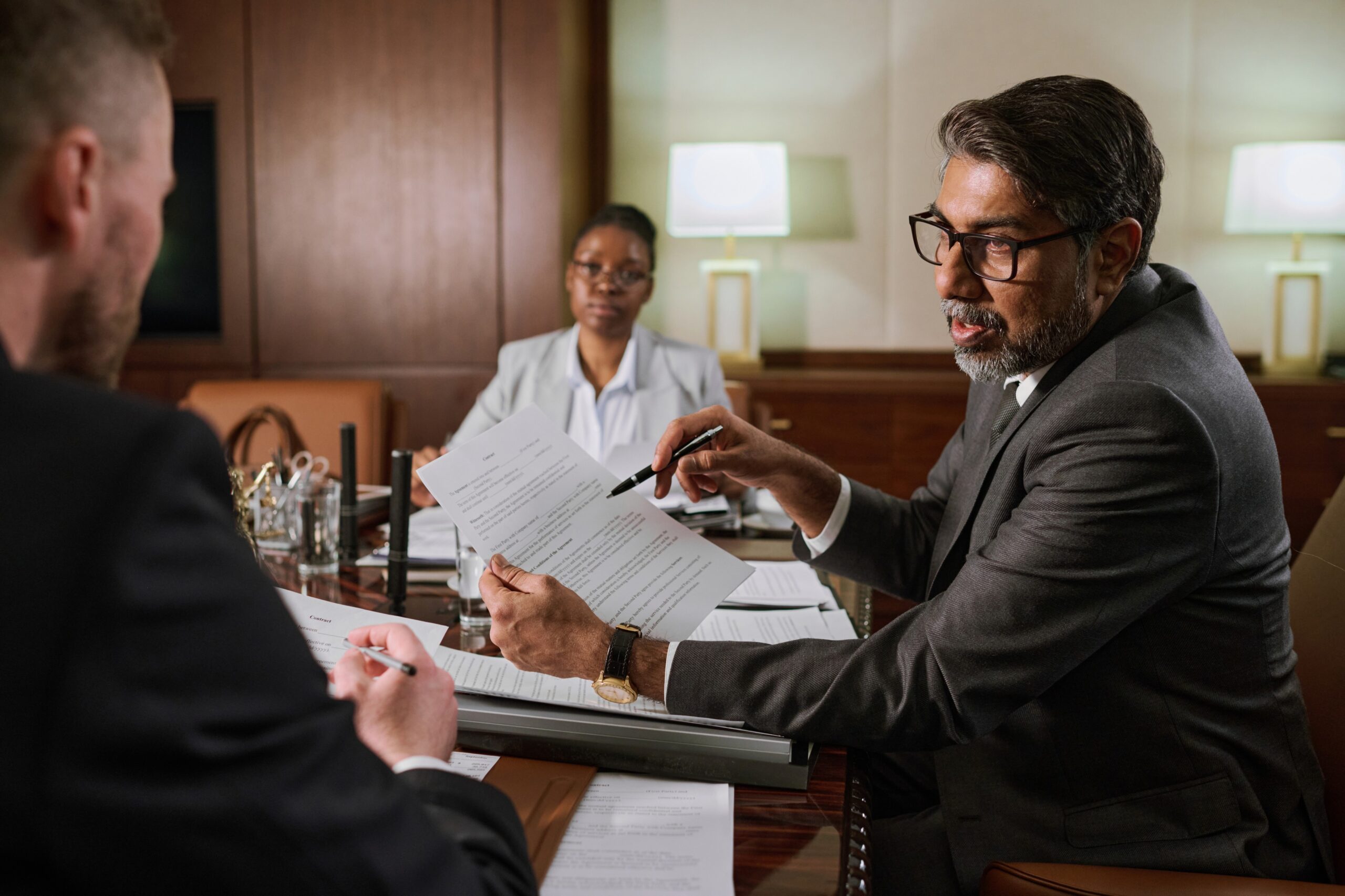Navigating the Initial Consultation with a Lawyer – Guest Post

Hiring a lawyer can be a daunting process, especially if you’re unfamiliar with the legal system. The initial consultation is your opportunity to assess the lawyer’s expertise and determine if they’re the right fit for your needs.
In this guide, we’ll explore the key aspects of navigating the initial consultation with a lawyer, from preparation to follow-up.
Gathering Essential Information
Gather any pertinent case materials, including contracts, correspondence, and medical records, prior to your consultation. Having these documents in order and easily available will help your attorney better evaluate the specifics of your case.
Spend some time writing down any important ideas or queries you would like to discuss during the appointment. You can maximize your time with the lawyer and make sure no crucial details are missed by being prepared ahead of time.
FindLaw notes that when you meet with a lawyer for an initial consultation, they may pay a consultation fee. During this meeting, you both will determine if the lawyer can assist you. For some cases, such as personal injury-related ones, consultations are often free.
How Lawyers Kickstart Your Case
When you first approach a lawyer for assistance with your legal matter, you’re essentially asking them to kickstart your case. This involves them initiating the process of understanding your situation, identifying potential legal issues, and devising a plan of action to address them.
From the moment you engage their services, lawyers begin gathering information, assessing the merits of your case, and strategizing the best approach.
The first step in the consultation is often the client intake process. This contains information regarding the incident or disagreement, pertinent parties, and any supporting paperwork or proof you may possess. Client intake software is often used by legal firms to expedite this procedure. This helps them to accurately and confidentially gather and arrange client data in an efficient manner.
Lawyers frequently use specialized software to collect and organize client information more efficiently throughout the client intake process. The purpose of this legal client intake software is to streamline and automate different parts of the intake procedure, increasing its accuracy and efficiency.
According to Law Ruler, the capacity of client intake software to safely collect and maintain client data is one of its primary features. This includes private data, case specifics, paperwork, and any additional pertinent data that the client may have supplied. By centralizing this information in a digital database, lawyers can easily access and reference it throughout the duration of the case.
Establishing a Relationship of Trust
Effective communication and rapport-building are essential components of a healthy attorney-client relationship because they foster mutual understanding and trust. Through open and honest communication, lawyers can provide more tailored legal advice and gain a deeper understanding of their client’s interests.
Indeed notes that attorneys, particularly those who appear in court, frequently use persuasive techniques in their work. Persuasive communication involves relating to others, identifying their pain points, and applying methods to solve cases successfully. While aimed at swaying others to a common cause, lawyers use these techniques to achieve positive outcomes for their clients.
Observe the lawyer’s mannerisms and communication style throughout the first consultation. Are they actively listening to your concerns and providing thoughtful responses? Building trust from the outset is crucial for fostering collaboration and confidence in your lawyer’s abilities.
Clarifying Expectations and Fees
Take advantage of the initial consultation to ask questions and clarify any uncertainties you may have about the legal process. Inquire about the lawyer’s experience handling cases similar to yours and their success rate. Additionally, discuss the lawyer’s fee structure and any potential additional costs that may arise during the course of your case.
According to Forbes, many attorneys charge hourly rates, ranging from $50 to several thousand dollars, depending on the complexity and specialization. Some attorneys charge a flat fee for specific services, providing upfront cost certainty for tasks like simple wills or uncontested divorces. You can decide whether to work with the lawyer in an informed manner if you are aware of these facts upfront.
Developing a Plan of Action
After the consultation, reflect on the discussion with the lawyer and consider their recommendations. Together, create a comprehensive action plan for your case that includes deadlines and important tasks.
Throughout the procedure, stay in constant contact with your attorney and take the initiative to heed their advice. By working collaboratively, you can navigate the legal process with confidence and achieve the best possible outcome for your case.
FAQs
What is the difference between a legal advisor and a legal consultant?
A legal advisor provides ongoing legal guidance and support within an organization, often as an in-house counsel. In contrast, a legal consultant offers specialized legal expertise and advice on specific projects or issues, usually on a temporary or contract basis.
How much does a legal opinion cost?
The cost of a legal opinion varies widely, typically ranging from a few hundred to several thousand dollars. The intricacy of the matter and the attorney’s level of experience will determine this. To get an exact quotation, it is best to get a quote.
How to effectively communicate with a lawyer?
To effectively communicate with a lawyer, be clear, concise, and organized in presenting your information and questions. Maintain regular communication, promptly provide any requested documents, and ensure you understand their advice and instructions to foster a productive attorney-client relationship.
In conclusion, navigating an initial consultation with a lawyer requires thorough preparation and clear communication to build a foundation of trust and collaboration. By organizing relevant documents and questions, you maximize the consultation’s effectiveness. Understanding the lawyer’s process, including client intake and fee structures, helps set clear expectations.
Establishing rapport through attentive and persuasive communication fosters a strong attorney-client relationship. Collaboratively developing a strategic plan ensures both parties are aligned in pursuing the best possible outcome. Adopt this proactive approach, as it empowers you to navigate the legal process with confidence and achieve your desired results.
